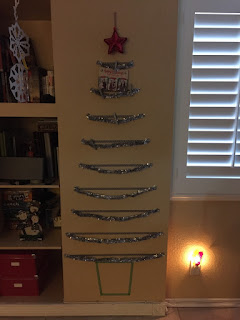Back in April, I attended the
Los Angeles Times Festival of Books. This event might be my most favorite event of the year. It is always such a fun day - speakers, curious topics, and great literature. For a reader, it's like a book carnival. Plus, it makes me feel smart to be there.
Each year, we attend 5-6 sessions on various topics but always make sure at least one of them includes comedy writers. This year was no exception as we went to a session called "
Make 'Em Laugh: A Look at Comedy from All Sides". The speakers were
Jon Macks (author and television writer most known for "The Tonight Show with Jay Leno" as well as numerous entertainment award shows),
Kliph Nesteroff (author/stand up comedian), and
Kenneth Turan (author/USC Writing Professor/LA Times' film critic). It was a well-rounded, funny, and so very interesting panel. Their stories about all aspects of comedy had us engaged and rolling with laughter. I was especially taken with Nesteroff's stories. He is known as the "King of Comedy Lore" so his accounts of famous comedians that we all know and love were fascinating, and I made note to check out his book once summer arrived.
I downloaded
The Comedians: Drunks, Thieves, Scoundrels, and the History of American Comedy back in June and JUST finished it last week. In my defense, I was reading a book book simultaneously which split my reading time in two. Anyhow, while this book is not my usual genre of choice, I did really enjoy it. Even though it was only 432 pages, it was a slow read as non-fiction often is. It wasn't slow because it was uninteresting, but rather due to all the names and facts. This book basically told the history of comedy in the 20th century - from Vaudeville in the 1920s to the effects of the 9/11 attacks on the direction of comedy in America. It was told in chronological anecdotes which were amusing. While most of the comedians included are well-known "greats" (The Marx Brothers, W.C. Fields, Jack Benny, George Burns, Johnny Carson, Lenny Bruce, George Carlin, Dave Letterman, etc), lesser known comics were given equal time. I was fascinated by the connection between comedy/comedy clubs and the Mob which was the case for several decades. Closing the book with the change in comedy after the NYC and Washington DC terrorist attacks, which is coming up on 15 years ago, many of the comedians mentioned as up-and-coming comedy writers (Louis C.K., Jon Stewart, Judd Apatow, Stephen Colbert to name a few) are now in the spotlight as great comedians. Of course the author would have known that as the book is rather recent, but I did like that connection.
There is only one criticism I have. While I understand that women in comedy were rare for quite a few decades, I do wish more detail was included about women comedians. Women were written about in the book, but after reading, I wanted there to be more than just a mention here and there. This issue didn't detract from the book by any means, and I would still recommend it.
These are some of the quotes I noted that were either poignant or just made me chuckle...
"Lenny Bruce joked that Chicago was the only city where death certificates listed a cause of death as 'He wouldn't listen'." (referring to the Mob)
"(Vaughn) Meader was hired to play JFK, but most record labels turned the idea down. They felt it was out of bounds to ridicule the president." (Times have changed!)
"(Lenny) Bruce was busted at Doug Weston's Troubadour on his return to Los Angeles. The crime was titillating Yiddish. The offending words noted in the police report were 'fressing, schmuck, putz, schtup, and tuchas.' Bruce was busted so often that comedian Herkie Styles started traveling to his gigs as an emergency understudy." (Even in 1966 comedians were arrested for inappropriateness.)
"Back in the old days it was run by the Mafia and run quite efficiently. You could see the greatest entertainment in the world at low cost. Now that the town is run by businessmen, the prices are outrageous. Every department must show a profit. In the old days, the Mafia let the casino carry the whole operation." (About Las Vegas)
Some of the most famous comedy clubs in Los Angeles did not pay their comedians, feeling that the exposure was enough. In the 70s, the comedians decided to form a union...
"Comedians knew they needed a united front in order to get paid. The Comedy Store was targeted rather than the Improv, as it was the most profitable. Meetings were hosted in the homes of Elayne Booster and Jimmie Walker, but it was tough to get the comedians to engage in serious discussion. 'Jay (Leno), bless his heart, couldn't sit still,' said David Letterman. 'He was behaving like a hyperactive child. Jumping up and down, being funny and distracting to the point where everybody sort of thought, well maybe we shouldn't tell Jay about the next meeting'."
"'Jay Leno was a loose cannon', says (Tom) Dreesen. 'I'd say Jay, Jay, Jay!' Gallagher was yelling, 'We'll burn the fucking place down!' They were all in disarray. I began to take charge of the meetings so they could get something done...It was hysterical - comedians at a union meeting. People were in the bathroom doing cocaine." (That visual made me laugh out loud).














































